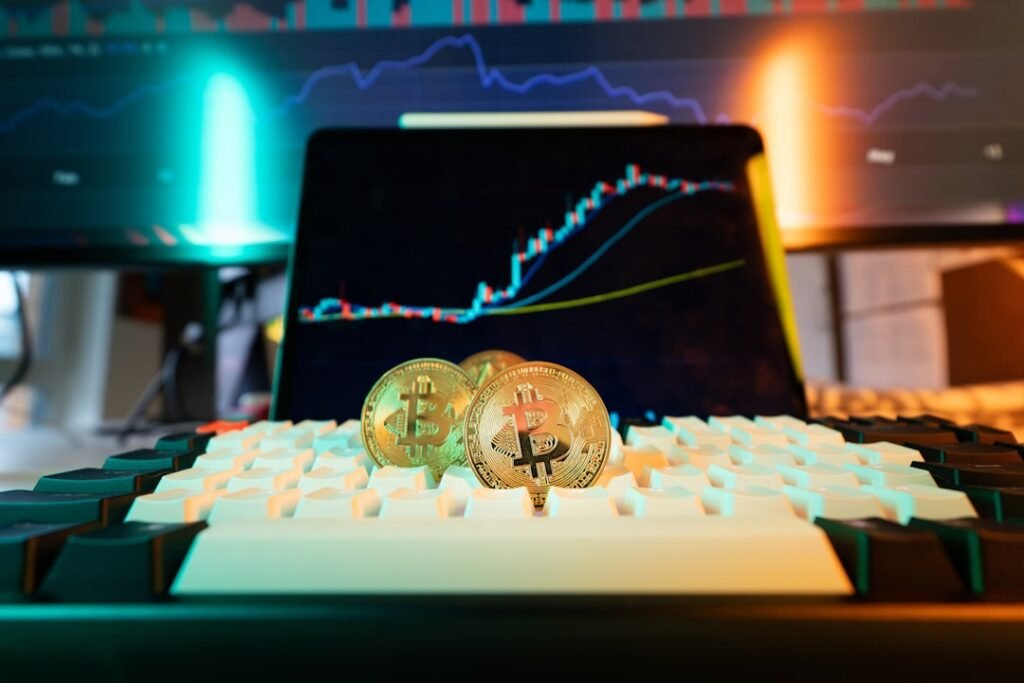As Argentina’s midterm elections approach and President Javier Milei implements stricter currency controls to support the peso, citizens like Ruben López are increasingly turning to cryptocurrency to protect their savings. A new financial strategy has emerged: utilizing stablecoins pegged 1:1 to the US dollar to capitalize on the approximately 7% disparity between Argentina’s official exchange rate and parallel market rates. According to cryptocurrency brokers, the trading process involves purchasing dollars, immediately converting them to stablecoins, then exchanging those stablecoins for pesos at the more favorable parallel market rate. This arbitrage operation, known as “rulo,” can yield profits of up to 4% per transaction. “I execute this trade daily,” stated López, a stockbroker from Buenos Aires who uses cryptocurrency as a hedge against inflation. This cryptocurrency activity reflects how Argentine citizens are adapting to renewed economic turbulence. Ahead of the October 26 elections, Argentina is depleting dollar reserves to bolster the peso and prevent the currency from breaching trading bands. Despite substantial US support, investors anticipate further peso depreciation post-election. The Argentine central bank recently introduced regulations prohibiting citizens from reselling dollars within 90 days to curb rapid arbitrage trading. The “rulo” arbitrage model emerged almost immediately afterward. On October 9, trading platform Ripio reported that “stablecoin-to-peso trading volume surged 40% in a single week,” attributing this to “users capitalizing on exchange rate volatility and market opportunities.” For many Argentines, such operations have become necessary in a country that has experienced three debt defaults this century. While President Milei, elected in 2023, has achieved some success in reducing annual inflation from nearly 300% to approximately 30%, the peso continues to depreciate significantly due to both his initial devaluation policies and recent investor concerns about the elections. The “rulo” phenomenon signifies a fundamental transformation in cryptocurrency’s role in Argentina: evolving from a novelty that intrigued citizens, including Milei himself, into a financial instrument for safeguarding savings. Unlike in the United States where cryptocurrency often serves as a speculative tool, in Latin America it has become a vehicle for stability-seeking. In Argentina, Venezuela, and Bolivia, crypto technology helps citizens navigate the triple challenges of currency volatility, high inflation, and strict capital controls. “We provide users with channels to purchase cryptocurrency with pesos or dollars and sell for profit—this is our daily business,” explained Manuel Beaudroit, CEO of local cryptocurrency exchange Belo. “Clearly, exchange rate differentials can generate substantial profits.” He noted that traders recently earned 3%-4% per transaction but cautioned that “such profit levels are quite unusual.” Other exchanges report similar trends. Local platform Lemon Cash indicated that its total cryptocurrency trading volume surged 50% above average on October 1, when the central bank’s 90-day dollar sales restriction took effect. “Stablecoins undoubtedly provide access to cheaper dollars,” observed Julián Colombo, Argentina country manager for exchange platform Bitso. “Cryptocurrencies remain in a regulatory gray area, and the government hasn’t clarified how to regulate stablecoins or restrict their liquidity, creating conditions for the rise of ‘rulo’ arbitrage.” However, stablecoin trading growth isn’t solely driven by arbitrage. As the Milei administration faces critical elections and economic pressures mount, many Argentines are using cryptocurrency as a hedge against potential further peso depreciation. “Inflation and political uncertainty have made us more conservative, so I maintain no peso savings or investments, using pesos only for daily expenses,” explained Nicole Connor, head of Argentina’s “Crypto Women Alliance.” “My savings are entirely in cryptocurrency and stablecoins, and I attempt to generate returns through them.” Despite these benefits, cryptocurrency operations aren’t without risks. While stock market transactions in Argentina are tax-exempt, cryptocurrency trading profits face taxes up to 15%. Additionally, frequent trading may attract banking scrutiny, with banks often requiring proof of fund sources for customers making repeated large transfers. Analysts suggest that Argentina’s reliance on stablecoins may deepen as economic challenges persist. Across Latin America, growing numbers of people are using these tools to protect assets against fiscal turbulence and election shocks. “Stablecoins are here to stay,” declared stockbroker López. “The dollar holds significant importance in Argentine society and daily life because it serves as our safe haven against local currency risks.”












